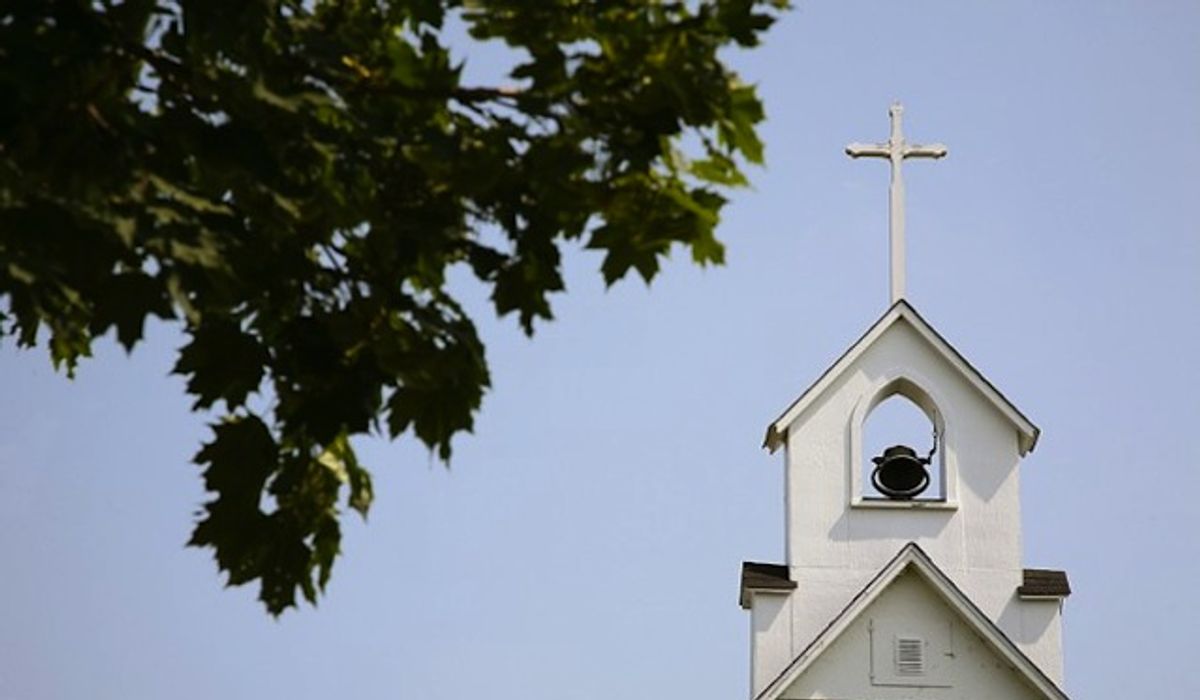
A group of faith leaders Monday said a new survey supports the ideas behind the Fairness For All Act, a bill pending in Congress that would guarantee the rights of LGBTQ individuals while protecting the religious freedoms of schools, social service agencies and congregations.
The survey was sponsored by the Alliance for Lasting Liberty, a group supporting the Fairness For All measure. It showed roughly three-quarters of Americans favor LGBTQ civil rights in health care, government services and public accommodations. Those surveyed also want to see LGBTQ individuals protected from employment, housing and banking discrimination by the same percentages.
Survey responders also strongly supported religious schools retaining their accreditation (75%), and an individual right to privacy in restrooms, showers and similar facilities (60%). A smaller majority, only 54%, supported the idea that religious schools should not be denied tax-exempt status based on their beliefs on marriage and sexuality. The survey was conducted in July by APCO Insight and canvassed 1,000 Americans, the group said.
The Fairness For All legislation is designed to supplant the Equality Act, a proposal approved by the House in February that has sent shockwaves through faith communities with traditional views on marriage and gender.
The Equality Act — currently languishing in the Senate — would amend the 1964 Civil Rights Act to include sexual orientation and gender identity as protected classes, and extend those protections to “public accommodations” such as sports stadiums and retail stores.
Critics note the Equality Act would also gut protections offered by the 1993 Religious Freedom Restoration Act, or RFRA.
Swapping in the Fairness for All legislation for the Equality Act is, according to faith leaders, is an attempt to find common ground between the rights of the LGBTQ community and the rights of religious individuals and organizations.
“We believe that Christians should stand on orthodox beliefs in the public square, while at the same time embracing civic pluralism, respecting the different values of others,” said attorney Justin Giboney, president of the AND Campaign, an Atlanta-based civil rights group.
“Both of these bills have real strengths,” noted Tyler Deaton, senior adviser at the American Unity Fund, a conservative group that supports LGBTQ rights. “But the biggest downside for both of them is that neither one in its current form is likely to pass,” he added.
However, Mr. Deaton and his colleague still favor the framework that Fairness For All provides. By guaranteeing religious liberty and further codifying LGBTQ rights, the group argued, both sides can be satisfied.
“Every time LGBT and faith issues were in the news, I would see a spike in LGBT kids being kicked out of their home by their parents,” said the Rev. Marian Edmonds-Allen, an ordained minister and executive director of Parity, an advocacy group. “I would see a spike in suicide attempts and completions. But things changed in Utah. After the Utah compromise became law, I saw the LGBT youth I knew move from despair, to dignity, to planning for having a family and a career.”
Ms. Edmonds-Allen said she hopes for a similar outcome from national legislation.
National Association of Evangelicals President Rev. Walter Kim noted the core belief that all humans are created in the image of God and possess an inherent dignity that must be respected.
“We want to affirm that no one should face violence, harassment, or unjust discrimination on the basis of sex, sexual orientation, or gender identity,” Mr. Kim said. “But we also wish to affirm simultaneously, the freedom to worship, to pursue service in a manner that expresses our faith.”
Shirley Hoogstra, president of the District-based Council for Christian Colleges and Universities, asserted evangelicals should support civil rights for LGBTQ individuals.
“I believe that Christians should stand with people who are on the margins and are discriminated against, like LGBTQ Americans,” Ms. Hoogstra said. “When Scripture says, ‘Love God and love your neighbor,’ you don’t pick your neighbor. It may be someone who was barbecuing [with you] on the weekends, but it may be someone with whom you have a disagreement on fundamental worldview issues.”
Ms. Hoogstra’s organization has sought to intervene in Hunter vs. Department of Education, an Oregon case where a coalition of LGBTQ+ students has sued to end religious exemptions to Title IX of the Education Amendments of 1972. The Religious Exemption Accountability Project claims such exemptions, which exclude faith-based colleges and universities from enacting policies on housing and employment aligned with their religious tenets, are unconstitutional.
The Biden administration’s Department of Justice initially indicated it would “vigorously defend” the Title IX exemptions, but then said it would interpret the statute as including cases based on sexual orientation and gender identity, reversing a policy of the Trump administration.
Asked about the prospects for the Fairness For All legislation, Robin Fretwell Wilson, director of the Institute of Government and Public Affairs for the University of Illinois System, told The Washington Times that the measure “has meteorically better chances because it strives to be inclusive of all interests and makes common sense. There are swirling interests in modern society, and Fairness for All is an honest attempt to allow all people to live with integrity.”








